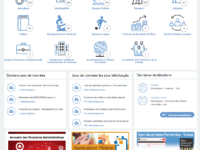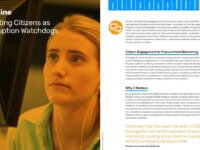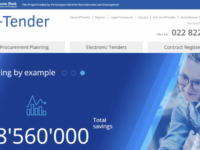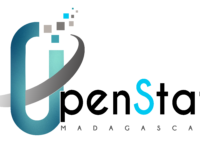The Anti-Corruption Digital Marketplace (MDA) is the first space developed by a public institution in the history of Mexico, in which public institutions can share free and ready-to-use digital tools, in order to streamline and promote innovation and cooperation among those that need either software, or other digital resources to achieve common goals in addressing corruption. The MDA contains more than 22 tools, some of them have been developed by other national or local level public…
Innovation Tag Opengov: anti-corruption
The National Open Data Portal is a single access point for all data produced by public institutions for the purpose of :
- Complying with the provisions of the organic Law on access to information in its section on the proactive publication of public data in open format;
- Promoting the reuse of public data to stimulate innovation and the creation of new value-added services aiming to enhance the economic growth; and
- Strengthening the transparency and integrity of governmental activities.
Case Study
Libellula – a civic monitoring lab and a format to build and sustain a local civic monitoring…
Libellula is a laboratory for civic monitoring of local public spending and a format to build and sustain a local civic monitoring coalition. The first lab is based in Messina, Sicily. Moving from monitoring a specific case, Libellula aims at building a civic multi-stakeholder coalition which, while monitoring, simultaneously cultivates skills and capabilities of those involved to advocate for transparent and collaborative public spending in order to address the misuse of public money.
Innovation helps citizens extract value from open data on the use of public funds and fosters accountability of public authorities for goods, services and works purchased. With the help of the electronic platform, the citizens and business can complain about non-competitive behaviour, poor quality or check the efficiency of procurement by their city council, school, hospital. Introduction of AI-powered risk monitoring allowed anyone to find and act upon violations in a fast and simple manner.
MTender is a revolutionary tool which will transform the way public funds are spent in Moldova, a country with a long history of corruption.
The world’s first fully digital public procurement system, MTender uses open data to manage every element of the public contracting system. This enables officials to do their jobs better, citizens to hold the government to account, taxpayers to get a better deal, and businesses to compete on a level playing field.
Case Study
Digital tools to monitor and predict risks in auditing Ukraine’s revolutionary online public…
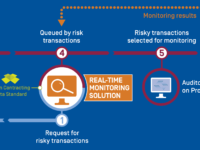
Ukraine is transforming its public procurement system to bring public procurement into the open, so citizens get a better deal and government runs smoothly. EBRD has supported the Ukrainian government to develop a new legal framework, and to develop cutting edge tools which can process vast amounts of procurement data in real time. State auditors can now quickly & pre-emptively spot risks or inefficiencies in the system and address them. It is the first innovation of this kind in the world.
The methodology of the “Brazil Transparency Scale” Survey consists of a checklist on 17 categories that cover all relevant aspects of the access to information regulation at the local level, the existence and functionality of the electronic Citizen Information Service (passive transparency), as well as the information disclosure of public funds, revenue, expenditure, public bidding, etc. (active transparency). The final evaluation score ranged from zero to ten.
Launched in June 2018, Openstat Madagascar is an open data platform to highlight the "how" Government should release their data. Developed in a country where there is no Access to Information law, data available on the platform are all under Creative Commons and used as tools for Open Data advocacy program. Other national entities which want to make their data available to the public are welcome for partnership.
A new waste management system, driven by information. Bogota has evolved its cleaning and recycling scheme, generating a profound transformation in the way in which citizens needs are met and garbage collection is managed. This model is based on the effective use of data and information. This initiative has allowed greater transparency in the actions of involved public and private organizations, an intense collaboration to provide the best service and enabling citizens active participation.
The NODC is a data catalog fully compliant with DCAT-AP, the European standard for dataset metadata. It is open source, developed on GitHub, and consists of other open source projects. It can be reused on various levels of government and addresses an important issue with currently available data catalog implementations not in compliace with today’s metadata standards.


